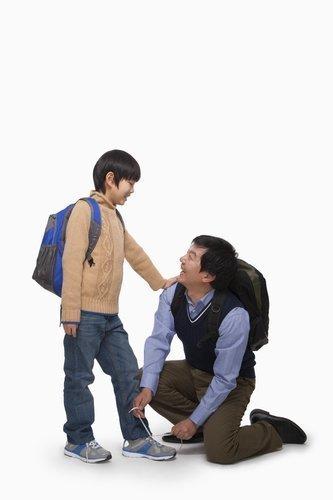
Recently, I read a study that reported North Americans place a high value on independence. We all want our children to grow up and stand on their own two feet; who wants their 30-year-old still living with them? The problem is, as Dr. Neufeld states, we are not birds that can be pushed out of the nest. In fact, the more we push independence in our kids, the more they cling, give up, or look to someone else for help. If we want to deepen attachment and cultivate independence, we first need to invite our children to depend on us.
Paradoxically, when we give the message to our children that we will take care of them, that they can count on us and lean on us, it helps them relax and feel well nurtured. Lo and behold, they actually move to venture forth, trying things on their own. I know this firsthand when I’m struggling with something. For example, when I have a problem with my computer, the more my husband denies me help, the more helpless I feel and the more I want to give up. When he moves in and says, “Here, let me help you,” I feel grateful and endeared to him. I rest, and it renews my energy and confidence to figure things out myself. For humans to stand on their own feet, they need to feel well taken care of first.
I worked for a wonderful principal who knew this secret. He was generous in inviting us to lean on him, and he always supported his staff. The teachers were attached to him, and he brought out the best in us. We actually worked harder for him than any other principal. He was an amazing leader on whom we could depend. All great teacher movies illustrate this. The teacher invites the student to lean on them until the student is strong enough to soar. We never see the master teacher being stingy, saying, “Don’t come to me for support. You’re on your own!” Instead, they invite us into their classrooms, letting us know they are available for extra help. If we are struggling with an assignment, they give us the message, “I am here for you when you need it.”
I find this paradoxical wisdom to be true over and over again with my own children. When I say to my daughter, “You’re struggling with that shoe, let me help you tie the laces,” she wants to learn to tie them herself. When I say to my son, who is struggling to write, “I’m going to help you. I’ll write every other line for you,” not only is he grateful, but he is also willing to try it himself rather than becoming overwhelmed and giving up. It’s not that a nudge isn’t sometimes appropriate or that we can never say, “No, I can’t help you right now.” Nor does it mean we should rush in to fix everything or interrupt them wanting to do something for themselves. But overall, being generous in our willingness to take care of our children goes a long way in helping them mature and grow.
Faith in the developmental process and trust that we are our children’s best bet will help them to realize their full potential. And one day, if we are lucky enough to live a long life, they may invite us to depend on them.
